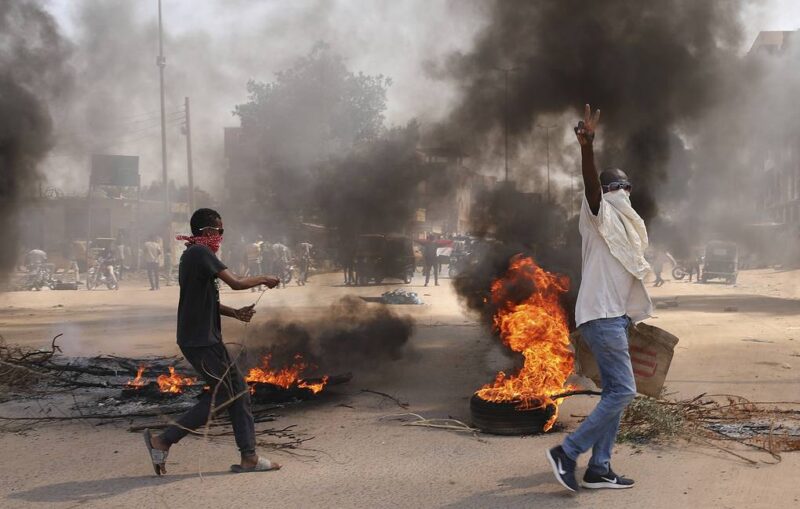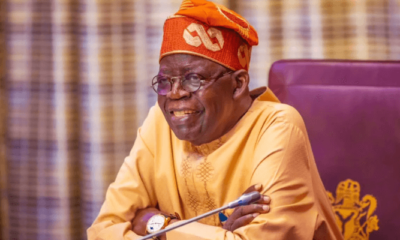Breaking News
UPDATE: How Sudan fighting could impact volatile region
Since tensions erupted, mediators from the United Nations, the African Union, regional IGAD bloc, and Western and Gulf capitals have been attempting to bring Burhan and Daglo to the negotiating table.

Fighting in Sudan between the forces of two rival generals could have far-reaching consequences not only for the northeast African country but also for an already unstable region, experts warn.
Clashes erupted on April 15 between forces loyal to army chief Abdel Fattah al-Burhan and his deputy, Mohamed Hamdan Daglo, the commander of the powerful paramilitary Rapid Support Forces (RSF).
Violence in the capital Khartoum and in other parts of the country quickly escalated, with air strikes in the capital and tanks battling on the streets.
Hundreds of people have been killed and thousands wounded across the vast country — Africa’s third biggest, roughly three times the size of France.
Analysts warn the conflict could draw in foreign armed groups and regional powers, triggering a new refugee crisis.
– Refugees –
Between 10,000 and 20,000 people have fled fighting to Sudan’s western neighbour Chad, the United Nations said Thursday.
The UN’s refugee agency, UNHCR, said eastern Chad was already hosting 400,000 Sudanese refugees, and the new arrivals were placing additional strain on the country’s overstretched public services and resources.
Sudan is one the world’s poorest countries, and in February the UN said more than one-third of its population was facing a growing hunger crisis.
“Millions of civilians are caught in the crossfire and fast running out of basic necessities,” the International Crisis Group (ICG) said Thursday.
Cameron Hudson of the Washington-based Center for Strategic and International Studies (CSIS) told AFP he was “fully expecting a massive exodus of civilians” once the first lasting ceasefire takes hold.
“I am expecting millions of people to try to cross borders,” he said.
– Fighting spreads –
The battles spread swiftly, engulfing Khartoum and its twin city Omdurman and several regions of the country, especially Darfur.
“The combat could quickly slide into a sustained war that risks rippling through the country’s restive peripheries into its neighbours,” the ICG added.
“The hostilities have pushed the country toward the full-blown civil war Sudanese have dreaded for years.”
Hudson said the violence was “a huge concern”, especially because it had erupted across a vast area.
Many of Sudan’s neighbours are already struggling after years of their own conflicts.
“The challenge is that the conflict… is spread on every corner of the country — on the border with Chad, the Central African Republic, South Sudan and Ethiopia,” Hudson said.
– Civil war –
If the conflict drags on, more people in the extremely fragmented Sudanese society might take up arms, said British analyst Alex de Waal.
“There are two protagonists,” he told AFP. “If the conflict continues, the situation will quickly become more complex.”
Each side is a coalition of several different groups, de Waal noted, who may shift their alliances potentially considering “ethnic factors”.
The New York-based Soufan Center warned of “meddling from external states, warlords, armed militias and a range of other violent non-state actors”.
“A failure by commanders to rein in their fighters could further prolong violence,” the think tank said.
– Regional powers –
Other countries in the region have all officially called for a cessation of violence, but experts agree Egypt backs Burhan while the United Arab Emirates backs Daglo, who is commonly known as Hemeti.
Hudson, of the CSIS, said the two generals were trying to acquire arms and reinforcements from neighbouring countries.
Russia’s Wagner mercenary group is also present in Sudan, but its involvement focuses mainly on exploiting the country’s gold reserves.
De Waal warned the fighting could draw in actors who provide funding, weapons “and possibly their own troops or proxies”.
Libya, the Central African Republic, Chad, Ethiopia and Eritrea are likely to play some political or even military roles in the conflict, he added.
He noted that it would be the same actors who would later be involved in mediation efforts to resolve the conflict.
– Mediation –
“Sudan’s instability is a concern for the entire world, but particularly for neighbouring countries,” said Emirati political scientist Abdulkhaleq Abdulla, noting its strategic position on the Red Sea.
“Everyone will pay a price” of a lasting conflict in Sudan, he said.
Since tensions erupted, mediators from the United Nations, the African Union, regional IGAD bloc, and Western and Gulf capitals have been attempting to bring Burhan and Daglo to the negotiating table.
So far, efforts have been in vain.
Some experts said years of diplomacy with the two generals since the overthrow of long-time autocrat Omar al-Bashir in 2019 emboldened them.
The international community and major powers “are getting nothing” when they now call for a ceasefire, Hudson said.
A rapid military victory seems unlikely, experts agree, with Burhan’s army more powerful, but Daglo’s RSF excelling in urban guerrilla warfare.
The stage appears set for a lasting conflict.









